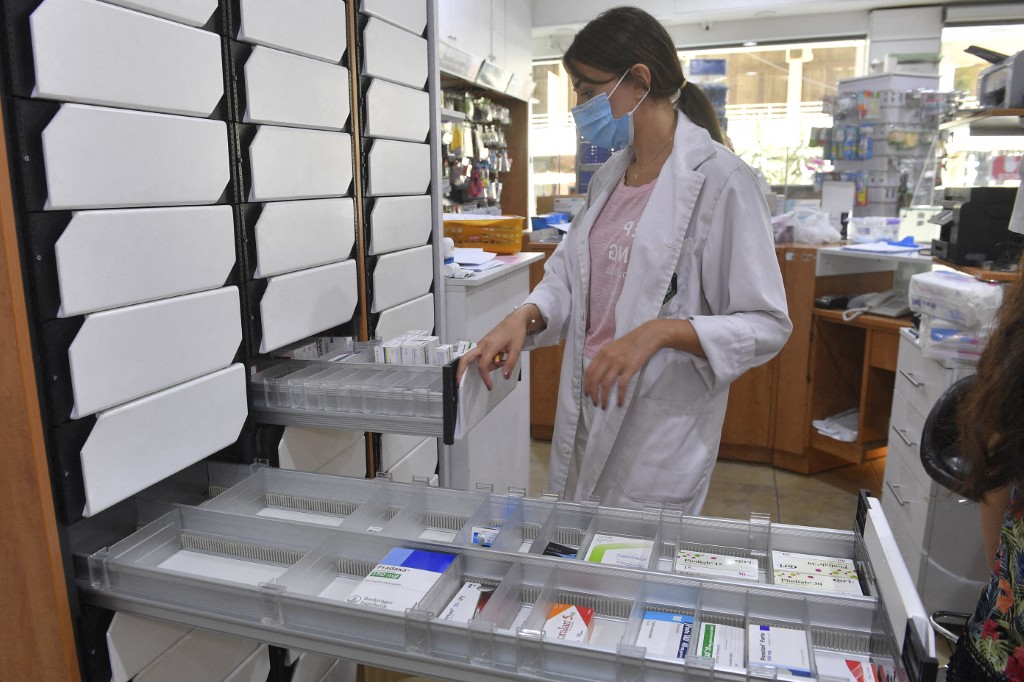Lebanon’s pharmaceutical sector is one of the country’s most vital industries, directly impacting citizens’ lives, especially amid the economic and financial crises that have gripped the nation since 2019. Despite the country’s capacity to produce nearly 70% of its local pharmaceutical needs during the economic collapse—according to the head of the Pharmacists’ Syndicate, Joe Salloum—this potential has remained largely untapped due to the absence of supportive government policies.
Lebanese pharmaceutical factories, which managed to endure the currency crash and lack of official backing, still suffer from the absence of tax incentives, investment support, and export opportunities. This lack of vision has deprived Lebanon of the chance to become a regional hub for drug manufacturing and exports.
The Challenge of Counterfeit and Smuggled Medicines
Alongside weak state support for local production, Lebanon faces a serious threat from counterfeit and smuggled drugs. This phenomenon not only undermines the health sector but also endangers lives.
Salloum notes that Lebanon has previously seen low-quality medications circulating in the market. Meanwhile, some subsidized medicines were smuggled out of the country, reducing availability for Lebanese citizens at fair prices. Today, social media platforms openly promote baskets of unlicensed drugs sold without oversight, quality assurance, or safety guarantees.
The problem is compounded by weak monitoring at borders and ports, allowing large quantities of smuggled drugs to flood the market. This has eroded public trust in both local and imported medications.
Preventive and Legislative Measures
Among the most significant steps currently being pursued by the Pharmacists’ Syndicate is the implementation of a “barcode” system. This would allow patients to verify the source and quality of medications before using them—a major step toward regulating the market and protecting consumers.
In addition, executive decrees establishing the National Drug Agency are expected to be issued soon, paving the way for an organized institutional framework to oversee the sector and put an end to the chaos.
How Can the Sector Be Protected and Strengthened?
Health policy expert Dr. Marwan Abdallah told Al Safa News that Lebanon’s pharmaceutical industry stands at a crossroads:
1- In the short term, stricter border and port control is needed, along with a crackdown on “suitcase traders” and unlicensed online sellers. Severe penalties should be imposed on anyone involved in smuggling or distributing counterfeit drugs.
2- In the medium term, swift activation of the National Drug Agency is essential, giving it full authority to oversee drug registration, importation, and distribution to ensure safety and quality.
3- In the long term, Lebanon must launch a national plan to support local pharmaceutical manufacturing by:
- Offering tax and customs incentives.
- Supporting exports and opening foreign markets.
- Encouraging partnerships with global pharmaceutical firms.
- Investing in scientific research to develop new drugs.
The expert stresses that investing in the pharmaceutical sector is not a luxury but a strategic necessity to safeguard Lebanon’s health and economic security, while positioning the country among those capable of producing and exporting high-quality medications.
A Mirror of Lebanon’s Crises
Ultimately, Lebanon’s pharmaceutical sector reflects the broader crises plaguing the country: the capacity exists, but the policies do not. As counterfeit and smuggled drugs continue to spread, reform becomes more than just a moral or health obligation—it is a fundamental condition for protecting lives and rebuilding trust in the healthcare system.
The state now faces a pivotal choice: either invest in this sector and transform it into an economic and health driver, or abandon it to the grip of chaos, corruption, and smuggling.
Please post your comments on:
[email protected]
 Politics
Politics













